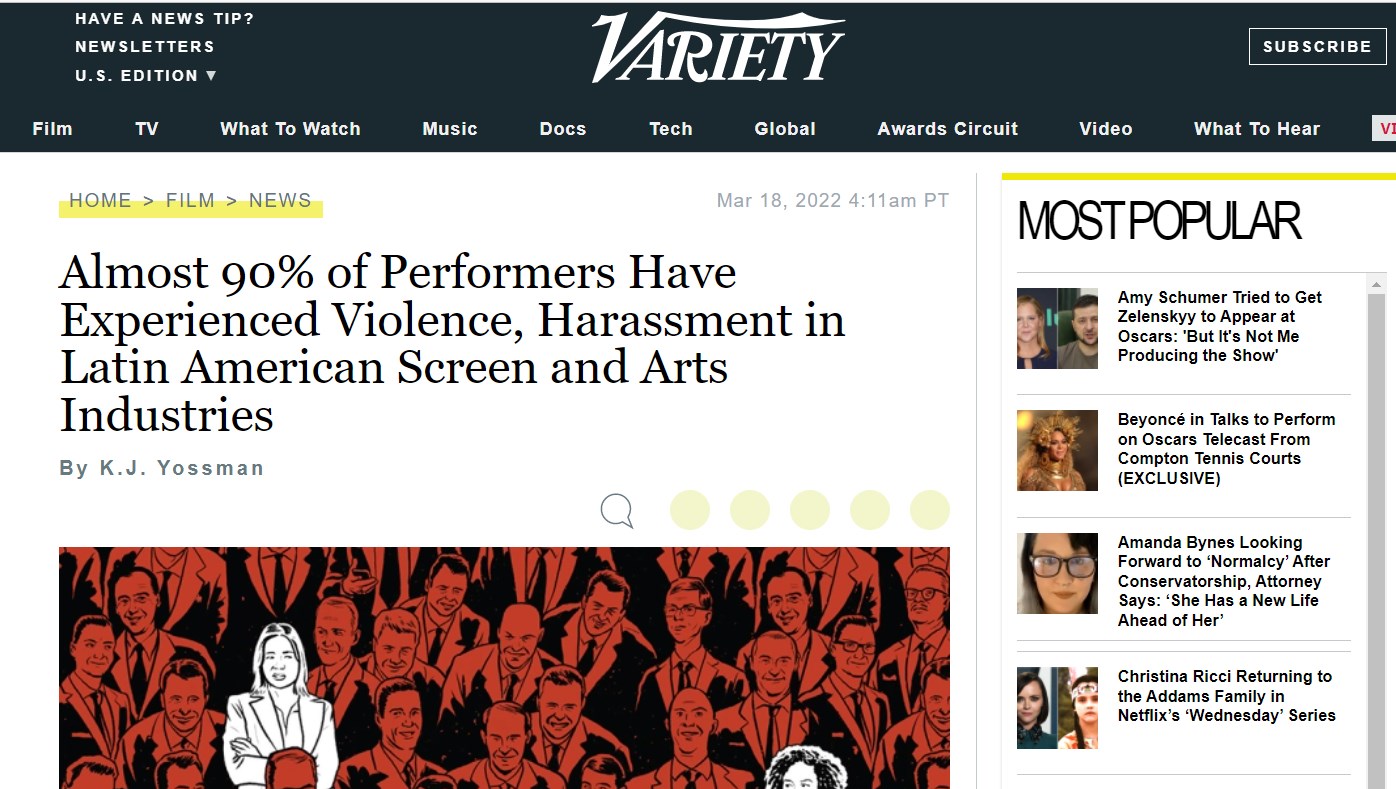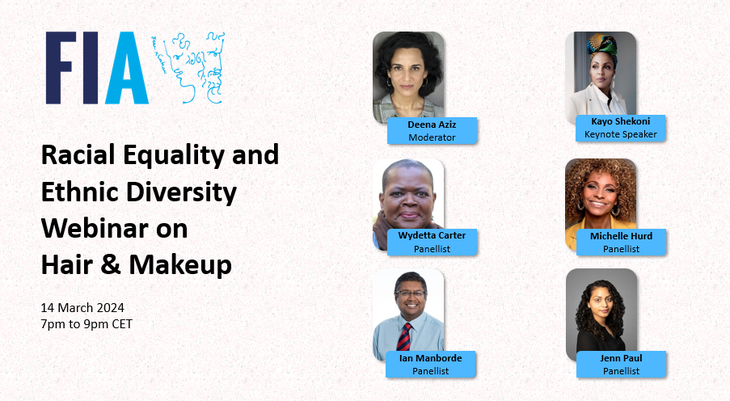Online Article by K.J. Yossman
Almost 90% of workers in the audiovisual and performing arts industries in Latin America, including Mexico, Peru and Uruguay, have experienced harassment and violence in the workplace.
The shocking figures were revealed in a new report published by the UNI Global Union’s media, entertainment and arts department together with the International Federation of Actors (FIA).
Responding to the joint UNI and FIA survey, 87% of women said they had experienced violence or harassment in the workplace while 95% of trans and non-binary workers reported the same. 70% of men responding to the survey said they had also experienced violence and harassment at work.
37% of respondents across the entire region said they had been sexually harassed at work, rising to 54% in Mexico alone. In Peru, 65% of workers in the industry said they were afraid or reluctant to go to work because they had been harassed or experienced a violent situation, or someone on their team had.
81% of women also said they had experienced “micro machismo” in the workplace (compared to 26% of men), meaning they had experienced “entrenched attitudes of male superiority and the occurrence of daily incidents of normalized macho behaviour.”
“I was ‘invited to retire’ from two comedies in the middle of rehearsals because I was pregnant,” one anonymous performer reported while others reported producers asking them out in exchange for casting them in a role.
The report was collated from 1,423 people working across 7 countries in Latin America who work in performing arts, audiovisual and media industries.
53% of respondents work in film, 39% in theater and 36% in television. Other respondents come from advertising, radio, dance, circus and puppetry.
Circus and puppetry were shown to have the most incidents of sexual harassment, with 50% of respondents from those industries reporting they had been victims. Puppetry workers also reported the highest levels of career limitation due to maternity or paternity (39% of respondents) followed by film (34%). Women’s careers were by far the most impacted by parenthood (36%) compared to men (19%) and trans and non-binary workers (16%).
Among the recommendations at the end of the report are the need for more education and training, awareness-raising, mediation and containment and the formation of specialized groups made up of “sensitive and knowledgable professionals” to assist on set and other performance spaces.
“This is a very important investigation that involves several Latin American countries and will give us the knowledge to understand and confront workplace violence and harassment,” said Sonia Santana, president of Sindcine Brasil and vice president of UNI Media, entertainment and arts Americas. “There is a whole macho culture in Latin America that must be combated. Identifying forms of harassment is one way to do it.”
Alicia Dogliotti, president of SUA Uruguay and vice-president of FIA, added: “Violence against women and trans and non-binary professionals takes many forms in the work environment: harassment, sexual harassment, segregation, wage discrimination, hiring restrictions, glass ceiling, just to name a few. We urgently needed a clear and precise diagnosis in order to promote and adopt specific policies. We find in this survey a good tool for such a diagnosis and the creation of essential networks to generate better and more equitable working conditions and, as the report itself indicates, to build safe, dignified, egalitarian and respectful of diversity workplaces.”
Full study and results available on the FIA Website here.





